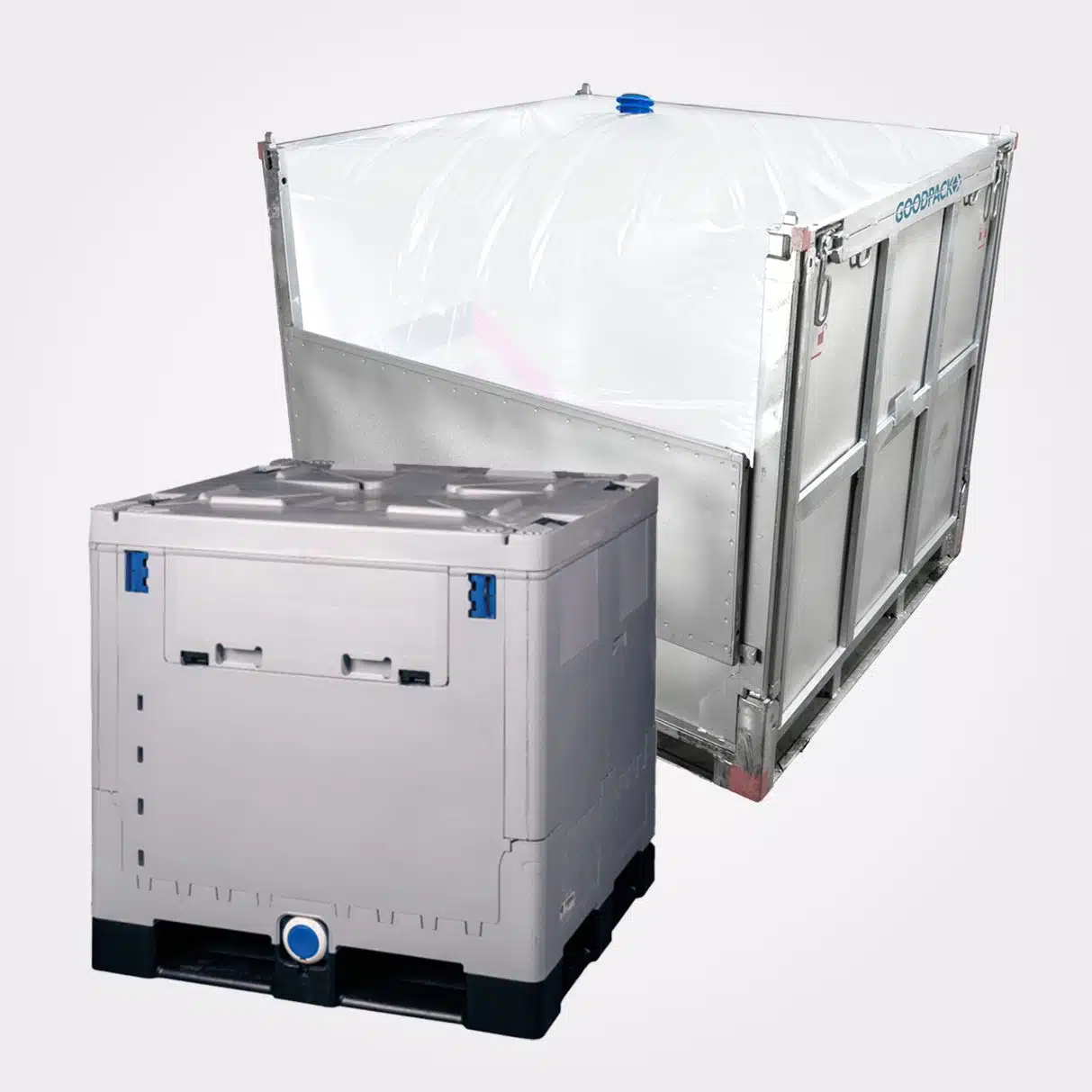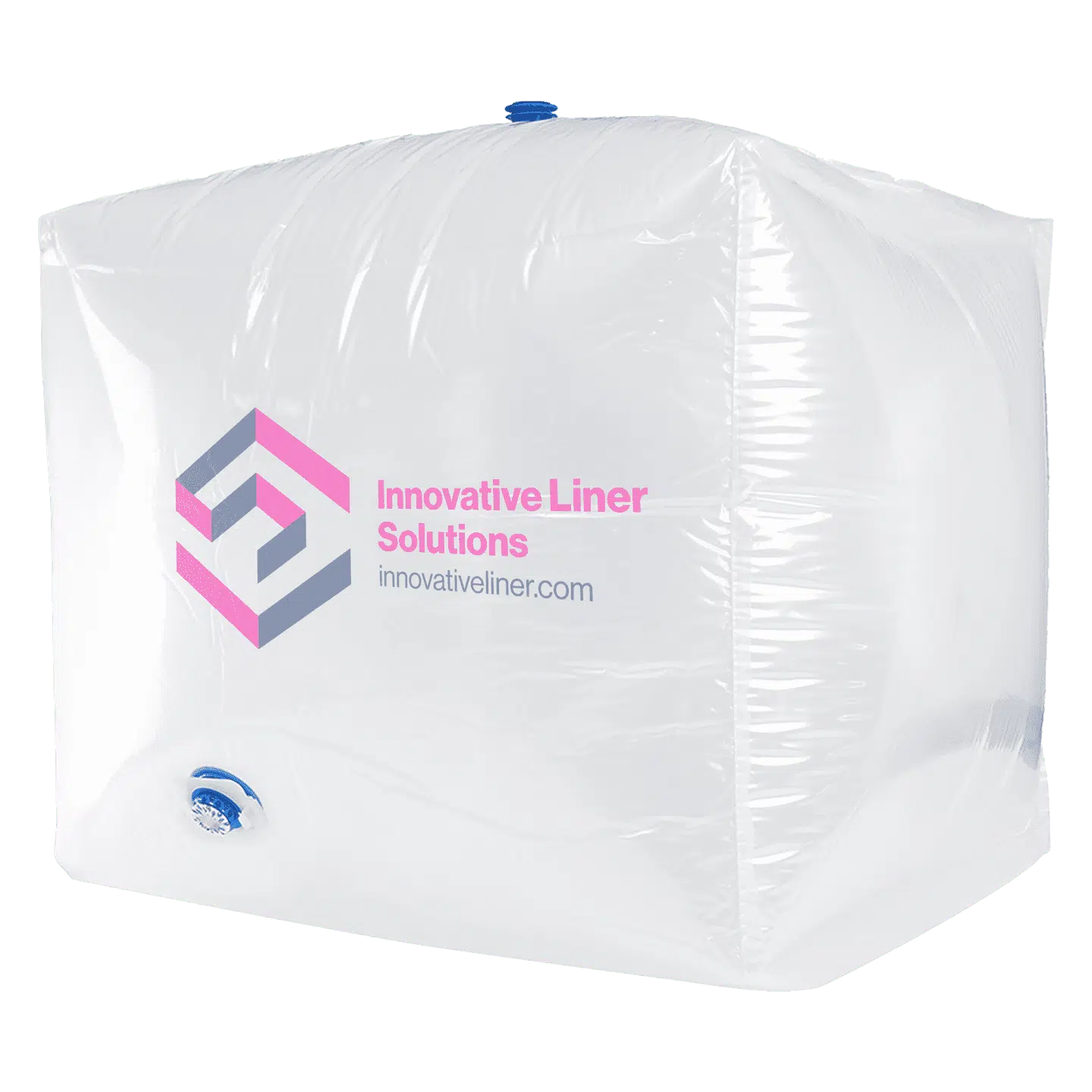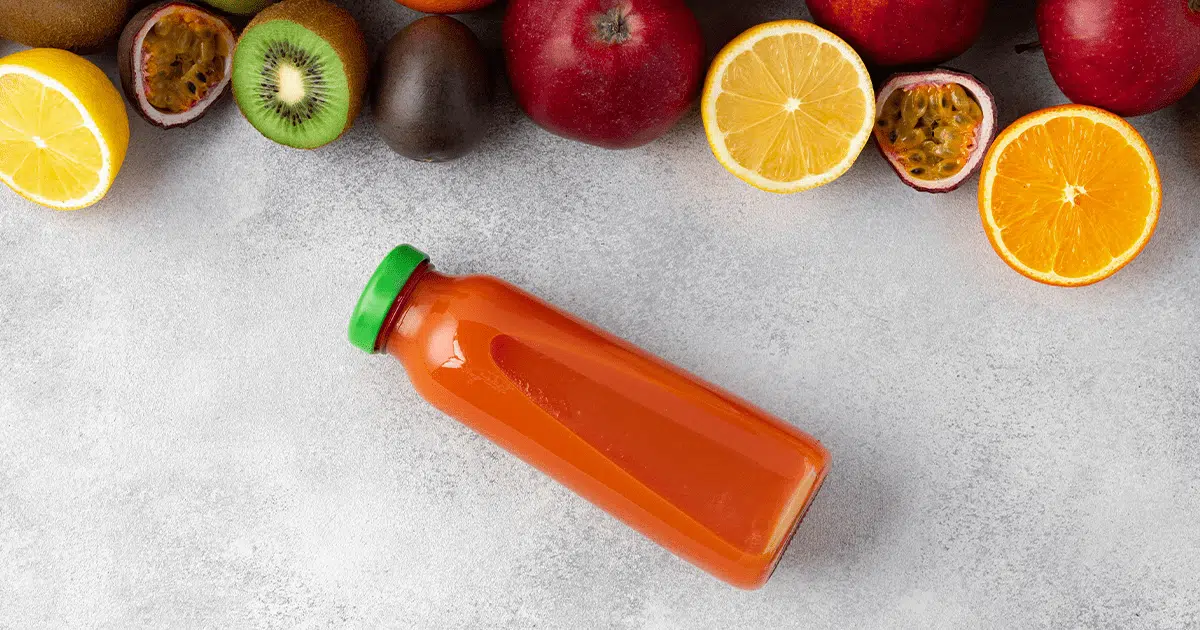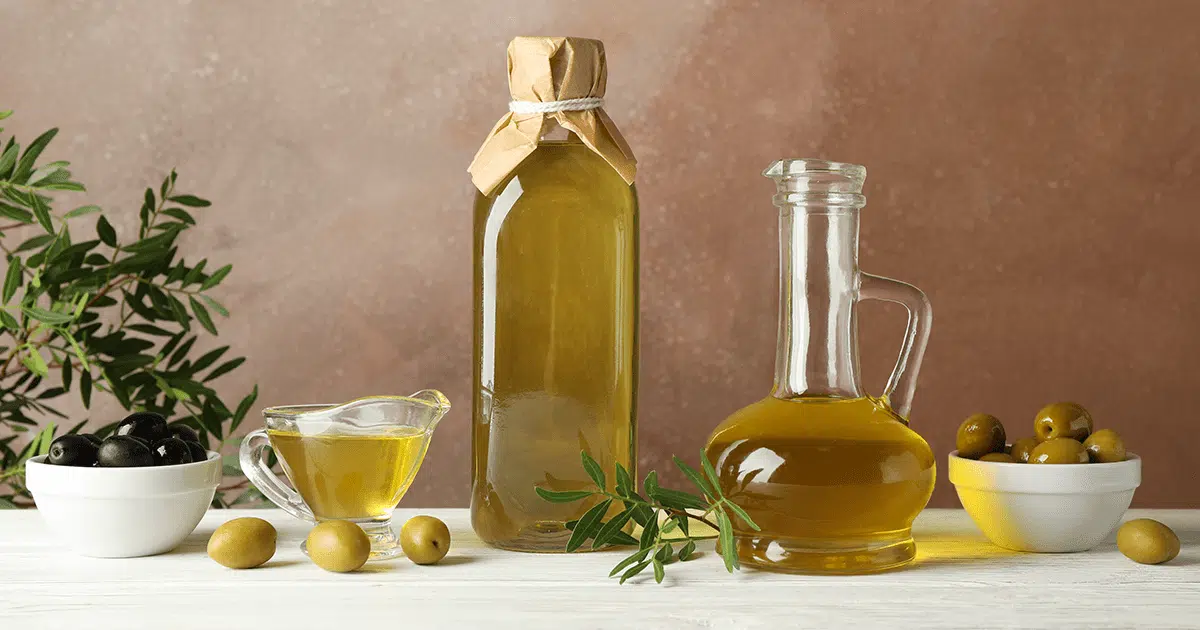Transporting and storing liquid food products safely and efficiently is essential to maintaining product integrity, freshness, and compliance with food safety standards.
As the global food and beverage industry continues to expand, manufacturers and distributors require packaging systems that provide both high performance and sanitation. Intermediate Bulk Containers (IBCs) have become a trusted solution for bulk liquid logistics—but their effectiveness depends heavily on the liners that protect the product inside.
This comprehensive guide explores how IBC Packaging for Food and IBC Packaging for Beverage systems safeguard liquid products during transport, storage, and filling. It also details the role of Food-grade IBC liners, explains best practices for safe handling, and highlights how Innovative Liner Solutions provides reliable, compliant, and cost-effective packaging for the global food supply chain.

The Role of IBC Packaging in the Food and Beverage Industry
The food and beverage sector handles a wide range of liquid products—from milk and edible oils to juices, syrups, and concentrates. Each of these products has unique physical and chemical properties that require specialized packaging to maintain freshness, safety, and quality.
IBC Packaging for Food offers a versatile and scalable approach to bulk liquid handling. These containers, combined with liners, provide a protective barrier that keeps the contents free from contaminants, oxygen, and moisture. Unlike drums or rigid tanks that require cleaning and sanitization, IBC systems with liners allow fast turnover and reduced risk of cross-contamination. Food & beverage bulk container liners are the critical element that transforms a standard IBC into a food-safe system.
Liners eliminate direct contact between the liquid and the container, creating a sterile environment that ensures compliance with international food safety regulations such as FDA and EU standards. Innovative Liner Solutions specializes in FDA-Compliant Bulk Liquid Packaging that supports every segment of the food and beverage supply chain. From dairy producers to juice processors and edible oil manufacturers, their liners are engineered for safety, durability, and performance.

Food-Grade IBC Liners For Dairy, Oils, And Liquid Foods
Liquid foods such as dairy ingredients, edible oils, and sauces present unique packaging challenges. They are sensitive to temperature changes, microbial growth, and oxygen exposure—all of which can compromise product integrity. Food-grade IBC liners address these challenges by providing a clean, hygienic, and efficient means of storing and transporting these products. Unlike rigid tanks or drums, liners form a sealed, disposable barrier inside the container that eliminates direct contact between the product and the container walls. This prevents contamination from residues or cleaning agents that could otherwise compromise product safety.

Each liner is engineered with multi-layer film technology that offers both mechanical strength and oxygen resistance. The inner layer maintains a sterile surface for food contact, while outer layers provide structural stability and protection from moisture and temperature fluctuations. This design ensures that sensitive liquids like milk, cream, sauces, and cooking oils retain their natural flavor, color, and nutritional value throughout the shipping process.
In addition, IBC Packaging for Food systems with liners reduce cleaning time and water usage, supporting sustainability while maintaining compliance with FDA and international food safety standards. For producers of high-value liquids, this combination of hygiene, efficiency, and durability makes liners the preferred choice for modern food logistics.
Safety and Compliance for Dairy Applications
Dairy-based liquids require strict temperature control and hygienic handling. IBC liners for dairy products are made from virgin, food-grade polyethylene and polypropylene films that are safe for direct contact with consumable products. These liners are non-reactive, ensuring that milk, cream, and whey remain pure and uncontaminated throughout transport.
Their design supports both cold-chain distribution and ambient storage, offering flexibility for different dairy processing environments. Each liner is certified as a food contact safe IBC liner, meaning it meets all relevant FDA and international food packaging standards.
Protection for Edible Oils
Edible oils, including olive, canola, sunflower, and vegetable oils, are highly susceptible to oxidation and moisture damage. Bulk edible oil container liners create an airtight barrier that prevents exposure to oxygen and humidity, helping preserve the oil’s flavor, color, and shelf life.
The smooth, non-porous surface of these liners ensures that oil drains completely during unloading, reducing waste and maintaining cleanliness. In addition, their multi-layer film construction adds puncture resistance, protecting against leaks and mechanical damage during long-distance transport.
Versatility for Liquid Foods
Beyond dairy and oils, Food-grade IBC liners are ideal for sauces, dressings, soups, and syrups. They are engineered to handle products of varying viscosity, providing flexibility for a wide range of food-grade liquids.
Multi-layer liners typically include:
Inner Layer: A smooth, sanitary film that directly contacts the liquid, ensuring chemical neutrality.
Middle Layer: A strength layer that prevents punctures and tears.
Outer Layer: A moisture and oxygen barrier that maintains freshness and prevents spoilage.
This construction keeps products stable and safe throughout the supply chain, even in varying environmental conditions.
Benefits of Food-Grade IBC Liners
Enhanced Hygiene: Liners eliminate direct contact between product and container, reducing contamination risk.
Regulatory Assurance: Compliant with FDA and global food packaging standards.
Operational Efficiency: Easy to install, fill, and discharge, with no cleaning required.
Sustainability: Reusable IBC shells with replaceable liners reduce waste and environmental impact.
Liquid food packaging solutions from Innovative Liner Solutions give manufacturers confidence in their product safety, quality, and performance from processing to delivery.
IBC Liners For Juices, Concentrates, And Beverage Transport
Juices, concentrates, and beverage ingredients are especially sensitive to oxygen, light, and temperature fluctuations.
Maintaining product integrity during transport requires packaging that provides an airtight, hygienic seal. IBC Liners for Juice & Concentrates are designed specifically to protect high-acid and sugar-rich liquids from spoilage and contamination. These liners use advanced multi-layer barrier films that block oxygen transmission, prevent moisture intrusion, and minimize UV exposure—all factors that can cause oxidation, discoloration, or microbial growth.
The smooth inner surface of the liner promotes efficient filling and complete discharge, reducing product waste and preventing residue buildup that could lead to fermentation or flavor changes. Because many fruit-based concentrates are naturally acidic, Food contact safe IBC liners are made from chemically inert materials that resist degradation or reaction with the product. This ensures that flavor, aroma, and nutritional properties remain unchanged throughout the entire supply chain.
In addition, these liners are compatible with both hot-fill and cold-fill processes, making them ideal for a wide range of beverages—from citrus concentrates and purees to flavored syrups and sweeteners. By integrating IBC Packaging for Beverage systems with these high-performance liners, producers can guarantee the consistent quality, safety, and freshness that today’s food and beverage market demands.

Maintaining Product Freshness and Flavor
Beverage concentrates can lose quality quickly if exposed to oxygen. Multi-layer liners act as oxygen barriers, protecting the product’s natural color, taste, and nutrients. These liners also prevent the introduction of microorganisms that can alter flavor or shorten shelf life.
IBC Packaging for Beverage applications often use EVOH or metallized barrier liners for enhanced oxygen protection. These liners maintain internal pressure, prevent oxidation, and ensure that beverages arrive at their destination as fresh as when they were filled.
Reducing Cleaning and Cross-Contamination
In traditional rigid containers, thorough cleaning between batches is necessary to avoid contamination. Liners eliminate this process entirely. Each new shipment starts with a sterile liner, eliminating the need for water, detergents, or sanitizing chemicals.
This simplifies operations for beverage producers handling multiple product types—such as fruit juices, flavor bases, or syrups—while ensuring strict hygiene standards.
Adaptability for Beverage Applications
Food & beverage bulk container liners are adaptable across a wide range of liquids, including smoothies, tea extracts, plant-based beverages, and dairy alternatives. They can withstand both hot-fill and cold-fill processes, maintaining strength and flexibility under varying conditions.
IBC Packaging for Food systems are also widely used in beverage production environments because they can handle different viscosities and filling requirements without changing equipment or container types.
Benefits of IBC Liners in Beverage Transport
Food & beverage bulk container liners are used across multiple sectors of the beverage industry. Each application requires tailored liner materials, film thickness, and fitment types. Innovative Liner Solutions engineers each design with precision to match product requirements and processing conditions.
Superior Hygiene: Prevents cross-contamination and microbial growth.
Longer Shelf Life: Protects against oxygen and moisture, maintaining freshness.
Operational Efficiency: Eliminates washing and cleaning between batches.
Cost-Effectiveness: Reduces labor, downtime, and cleaning-related expenses.
Versatility: Suitable for juices, concentrates, syrups, and flavorings.
Specialty Beverage Liners
Form-Fit Liners: Designed to fit perfectly inside the IBC, maximizing volume and minimizing wrinkles or folds.
Barrier Liners: Multi-layer construction for oxygen-sensitive products like juices and syrups.
Aseptic Liners: Pre-sterilized for safe filling and transport of sensitive liquids.
Each liner is a key component of FDA-Compliant Bulk Liquid Packaging, ensuring beverages are protected from environmental factors while maintaining compliance with international food transport standards.
Safe And Hygienic Bulk Liquid Transport For Food Industry
Hygiene and safety are non-negotiable in food logistics. Contamination during transport can lead to significant product losses and reputational damage. Food & beverage bulk container liners provide a solution that ensures every shipment is sealed, clean, and compliant. These liners act as an internal barrier, isolating the product from potential contaminants such as bacteria, airborne particles, and residual materials from previous shipments. This isolation not only safeguards food quality but also simplifies cleaning protocols, reducing the need for water-intensive sanitization and harsh chemical agents.
Each liner is designed for precision fit, ensuring no gaps or creases where contaminants can accumulate. When paired with IBC Packaging for Food and IBC Packaging for Beverage, these liners maintain a completely closed system, preventing exposure during filling, storage, and discharge. They are also manufactured under cleanroom conditions using FDA-approved materials that are free of additives or compounds that could affect product flavor or integrity.
This hygienic design is especially critical for sensitive liquids such as dairy, oils, and juices, which can quickly spoil or ferment if exposed to unsanitary conditions. By using Food contact safe IBC liners, food and beverage producers not only comply with stringent global safety standards but also gain peace of mind knowing their products arrive at their destination in pristine condition.
How Liners Enhance Transport Safety
Food contact safe IBC liners act as a protective layer between the liquid and the IBC walls. This design eliminates contact with potential contaminants, ensuring every batch maintains the same purity and quality. By completely isolating the product, liners reduce the risk of chemical reactions, bacterial growth, and residue buildup that can occur with unlined containers. This is especially important for high-sensitivity products such as dairy, fruit concentrates, and edible oils, where even minor contamination can result in spoilage or compliance issues.
The liners are manufactured in cleanroom environments using high-quality, virgin resins that undergo rigorous testing for food safety. These films are FDA-approved, free of BPA and other harmful additives, and certified for global food contact compliance. Each liner batch is traceable with unique identification codes, allowing complete transparency for audits and quality assurance programs required by the food and beverage industry. This traceability supports adherence to HACCP and ISO food safety systems, ensuring that every liner used in IBC Packaging for Food meets strict hygiene and regulatory standards.
Protecting Against Environmental Factors
Temperature, humidity, and air exposure are major concerns during bulk liquid transport, especially over long distances. Liners safeguard products by providing a consistent barrier against oxygen, moisture, and temperature fluctuations. This protective layer maintains product stability by preventing oxidation, microbial contamination, and nutrient loss. For heat-sensitive or perishable items, this can mean the difference between a fresh, market-ready shipment and a rejected batch.
For dairy applications, IBC liners for dairy products preserve freshness and ensure reliable cold-chain performance, keeping milk, cream, and whey products safe for consumption. In oil applications, bulk edible oil container liners act as an oxygen shield, preventing rancidity and maintaining color, aroma, and nutritional integrity. For fruit juices and syrups, IBC Liners for Juice & Concentrates lock in flavor and prevent sugar crystallization or fermentation during extended storage and shipping. The result is greater reliability and fewer product losses across global supply chains.
Efficient and Clean Operations
One of the greatest operational advantages of using liners is the elimination of cleaning and sanitization between loads. Traditional stainless-steel tanks, totes, or drums require extensive washing, which consumes large amounts of water, detergent, and energy. With liners, these steps are no longer necessary. Once the IBC is emptied, the used liner is removed and replaced with a new, sterile one, allowing immediate turnaround for the next batch.
This simple yet effective process saves time and labor, reduces downtime, and prevents cross-contamination. It also enhances safety by reducing employee exposure to cleaning chemicals or confined space entry during tank maintenance. Every new liner provides a pristine, food-safe environment for each product fill—making IBC Packaging for Beverage systems both efficient and reliable.
Supporting Sustainability Goals
As sustainability continues to drive innovation across the food industry, packaging systems that minimize waste and conserve resources are in high demand. Using liners with reusable IBCs significantly reduces the environmental footprint of liquid transport. Instead of relying on single-use containers, food manufacturers can reuse the outer IBC structure multiple times while simply replacing the liner. This practice cuts down on material waste, decreases water consumption, and eliminates the need for chemical cleaning agents.
Many liners are recyclable depending on regional waste management capabilities, and Innovative Liner Solutions continues to develop eco-friendly materials that support circular economy principles. Because the liners are lightweight, they also contribute to fuel efficiency by reducing transport weight. Combined with fewer cleaning operations and reduced water usage, these benefits add up to substantial environmental savings.
By adopting advanced liquid food packaging solutions from Innovative Liner Solutions, producers gain more than a hygienic transport method—they gain a system built for long-term sustainability. Each liner reflects the company’s commitment to safety, performance, and environmental responsibility, helping food and beverage manufacturers maintain compliance while achieving measurable progress toward their sustainability goals.
Integration of IBC Liners Into Food and Beverage Supply Chains
Liners are compatible with a wide range of existing food and beverage handling systems. They integrate seamlessly into automated filling and discharge equipment, reducing manual handling and potential exposure to contaminants.
IBC Packaging for Beverage systems allow easy filling through top ports and complete product discharge through bottom valves. Liners can be fitted with specialized fittings to accommodate hot-fill, cold-fill, or aseptic processes. For manufacturers handling multiple product types, liners offer flexibility without the need to dedicate separate containers for each product line. This adaptability simplifies logistics while maintaining sanitation and consistency across operations.
Multi-Industry Applications
Food-grade IBC liners are used across numerous sectors. Each application benefits from the same fundamental qualities—hygiene, compliance, efficiency, and safety.
Dairy and Cream Processing
For milk, cream, and whey concentrates.
Oils and Fats Industry
For edible oils, shortening, and margarine bases.
Beverage Manufacturing
For juices, concentrates, flavor bases, and syrups.
Food Processing
For sauces, dressings, soups, and purees.
The Future of Food and Beverage Packaging
As the global food trade continues to expand, the demand for safe, sustainable, and efficient transport packaging will only grow. IBC Packaging for Food and IBC Packaging for Beverage systems with high-quality liners will remain essential tools in meeting these evolving needs.
Innovations in barrier film technology, recyclable materials, and liner manufacturing are driving improvements in performance and environmental sustainability. Companies like Innovative Liner Solutions continue to invest in product development to deliver advanced liquid food packaging solutions that meet both regulatory and operational challenges.
Whether transporting dairy ingredients, edible oils, or high-value beverage concentrates, the right liner ensures product quality, operational safety, and environmental responsibility.
The Future of Food and Beverage Packaging
Sustainability is no longer optional—it’s a defining factor in packaging innovation. In the modern food and beverage industry, companies must balance safety, performance, and environmental responsibility. Food-grade IBC liners are a cornerstone of sustainable bulk transport because they allow the outer container to be reused multiple times while the inner liner is replaced as needed.
This design drastically reduces water, chemical, and energy consumption by eliminating the need for tank or drum washing. The result is a lower carbon footprint and improved operational efficiency. Many Liquid food packaging solutions offered by Innovative Liner Solutions are recyclable, depending on local waste management infrastructure. Liners are typically made from single-resin polyethylene structures or compatible multi-layer films that can be reclaimed and repurposed after use.
Moreover, the lightweight nature of liners compared to rigid containers reduces overall shipping weight, cutting fuel consumption and transportation emissions. When paired with reusable IBCs, this packaging system supports a circular economy model that prioritizes resource efficiency and waste reduction.
Innovative Liner Solutions continues to explore eco-friendly materials, including bio-based and partially recycled polymers, to further reduce environmental impact. Their commitment extends beyond product design—each production process is optimized to minimize scrap, conserve energy, and ensure compliance with international environmental standards.
For food and beverage manufacturers seeking to meet corporate sustainability goals while maintaining food safety and compliance, adopting Food & beverage bulk container liners offers measurable advantages. It’s an environmentally responsible approach that aligns with global trends toward cleaner, smarter, and more sustainable supply chains.
Why Choose Innovative Liner Solutions
Innovative Liner Solutions is a leader in FDA-Compliant Bulk Liquid Packaging for the food and beverage industry. Their liners are designed with precision and manufactured to the highest safety and quality standards. Each product undergoes rigorous testing for durability, cleanliness, and performance.
The company’s team of experts works directly with clients to assess their production environments, product types, and transport needs. Whether for IBC liners for dairy products, bulk edible oil container liners, or IBC Liners for Juice & Concentrates, Innovative Liner Solutions provides tailored packaging systems that fit seamlessly into existing workflows.
Their dedication to innovation, quality, and sustainability makes them a trusted partner for global food and beverage manufacturers seeking reliable food & beverage bulk container liners.
Partner With Innovative Liner Solutions
Food-grade IBC liners play a vital role in ensuring safe, efficient, and sustainable bulk liquid transport. With decades of expertise in IBC Packaging for Food and IBC Packaging for Beverage, Innovative Liner Solutions delivers superior products that support quality, compliance, and operational excellence.
From dairy and oils to juices and concentrates, their liners offer unmatched protection, performance, and convenience—helping food producers maintain product integrity and streamline their logistics.
Partner With Innovative Liner Solutions
To learn more or request guidance on the best liquid food packaging solutions for your business, call (815) 963-9525. Innovative Liner Solutions is ready to provide expert support and trusted packaging systems designed for the future of food and beverage transport.

